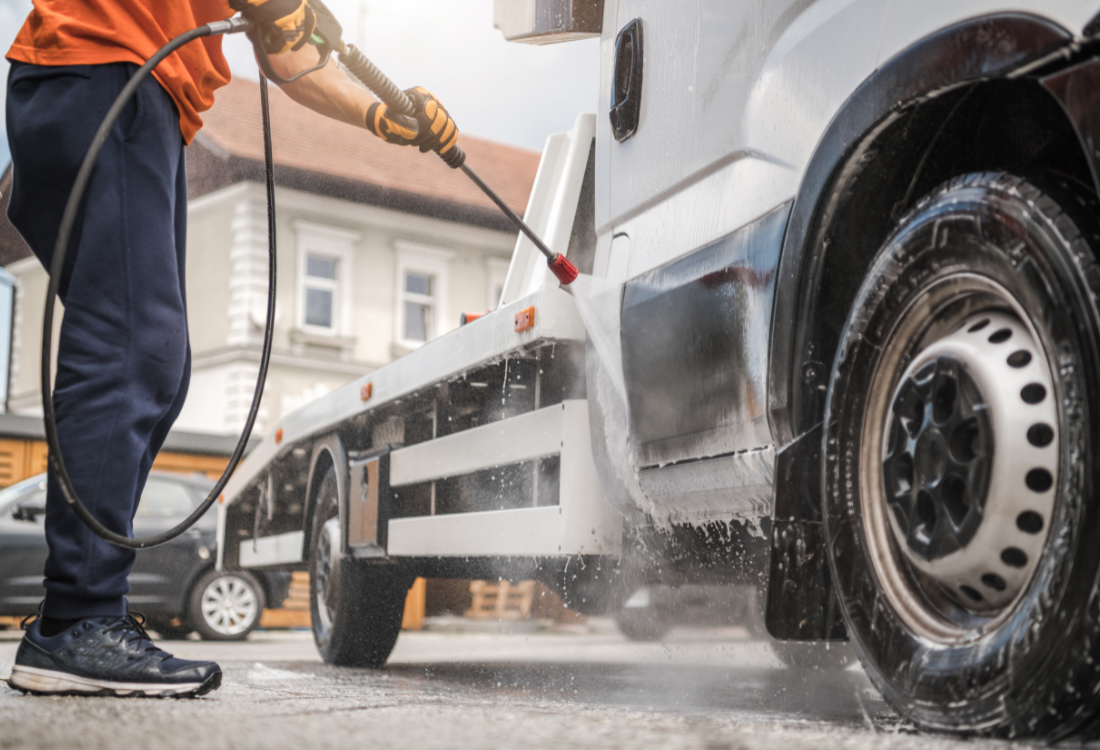
Could A Water Recycling System Cut Your Fleet Maintenance Costs?
Commercial vehicle fleet operators are under significant pressure from customers, the government, and regulators to reduce their water footprint. ‘Water footprint’ has two aspects to it. First is the aggregate volume of water used by a wash system. An efficient, modern system will ideally use less water to achieve the same results as an earlier generation. The second aspect relates to the burden placed by businesses on the public sewer system and how much it costs the public purse to process the water used for washing vehicles.
As regulations governing commercial water use become more stringent, deploying a water recycling system is an effective way to not only decrease your total use but also the amount of water released into the public sewer. This has the potential to streamline your operations, save money, and reinforce environmental compliance.
Read on to find out more…
The True Cost Of Traditional Fleet Washing
‘Traditional’ water-based setups were not designed with water efficiency in mind. Not many people discussed water footprint at all in the golden days of manual spray-washing, and utility rates were usually fairly cheap. Setups, therefore, consumed large volumes of potable water and often generated contaminated wastewater that required careful handling and disposal. Integrated wash bays then followed similar practices. Under recent environmental laws, however (e.g. the Environmental Permitting (England and Wales) Regulations 2016), operators are now required to ensure that contaminated water containing substances such as oils, detergents, and dirt is appropriately treated before discharge. As a result, trade waste charges in the UK can exceed £3 per cubic metre in some areas, particularly where water authorities enforce strict discharge limits. This is compounded by rising commercial water rates, which in many areas are £2 per cubic metre or more when both water supply and sewerage charges are included.
Commercial Water Recycling Technology: A Viable Solution?
Contemporary water recycling systems are engineered to capture, treat, and reuse wash water in a closed-loop greywater recycling system that reduces your water utilities' overheads and footprint. A recycling system typically incorporates multiple treatment stages, starting with filtration and oil-water separation, and often moving on to advanced filtration using membrane bioreactors. A high-quality system can reclaim a significant proportion of your wash water for future use, with 95% recovery rates available for some of our systems.
How Water Recycling Can Save You Money
Water recycling and reduction is good for the environment and reduces the amount of expensively treated drinking water used for washing vehicles and other commercial purposes. However, the principal economic benefits of water recycling systems for businesses arise from reducing incoming water consumption and outgoing wastewater discharge, both of which incur long-term commercial fees. Extra savings come from optimising your detergent use and dosing, reducing manual water handling, and reducing the unplanned maintenance issues and downtime caused by poor water management.
Streamlining compliance with environmental legislation can also reduce your red tape administrative costs. Many of our customers have noticed an immediate reduction in water and sewerage bills following the installation of their water recycling system, accompanied by long-term savings as demand for mains water falls and trade waste volumes decrease.
Is Water Recycling Right For Your Fleet?
Most businesses stand to gain measurable reductions in both water use and operating costs from a water recycling system. However, before you invest in a system, it is worth carrying out a water audit to identify any inefficiencies and potential savings in your operation. This will help you perform a specific ROI and savings analysis to identify how your investment can reduce water usage and lower your utility bills. The audit will help you create a detailed assessment of your cleaning needs, along with your existing infrastructure, and the potential cost/benefit profile of your site.
When working with Britannia Wash Systems, our expert team can ensure that your chosen solution delivers optimal value and performance results for your specific fleet application.
To find out more about water recycling and how it can support your business, please contact us today by clicking here.
Image source: Canva
.webp?width=249&height=77&name=Britannia-logo%20(1).webp)

